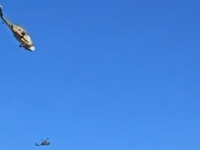A partnership agreement to be signed with the EU will give Lebanon a timely boost as it faces US pressure in the war against terrorism and the threat of financial crisis. "It is clear that this was a good point for the government of Prime Minister Rafiq Hariri which can now present the agreement as an important step toward redressing the country and integrating it into the world economy," a Western diplomat said Tuesday, November 20.
"At the same time, it is a political gesture from the EU and a sign of confidence," as underlined by EU Commission President Romano Prodi who announced in Beirut Monday that the deal would be initialed within two weeks.
Out of an annual average of between five and six billion dollars worth of Lebanese imports, more than four billion dollars originate from European Union countries. Lebanon, which at the end of 2000 lowered customs in a bid to relaunch the economy, will benefit from easier access to European markets, mainly for its agricultural products.
But according to an international financial expert, "Lebanon still has to escape the infernal spiral of a public debt which exceeds $25 billion and which is becoming ever more expensive to finance." The debt, according to the International Monetary Fund, will amount to nearly 173 percent of Growth Domestic Product by the end of the year.
The Lebanese government plans to introduce Value Added Tax (VAT) next year, an important fiscal measure for a country which suffers from poor tax collection. The 2002 state budget forecasts cuts in subsidies to a number of sectors, including cereals, and a decrease in the budget deficit which this year represents 20 percent of GDP.
Countries and institutions, which have offered to assist Lebanon, have been waiting since their first meeting in Paris in February for the Lebanese government to adopt specific measures to reduce public debt.
A Paris II meeting will have to await such measures, including a reduction of the size of Lebanon's bloated civil service and privatization of state utilities, mainly telecommunications and energy.
The government this year laid off about 2,000 employees from the state carrier Middle East Airlines, the information ministry and official Tele-Liban television station. But this was apparently not enough, as an IMF report in October urged the Beirut government to abandon its policy of supporting the Lebanese pound. Since 1995, the pound has been maintained at around 1,500 to the dollar.
Donor countries have also been requesting that the IMF and Lebanon agree on a medium-term program to scale back the debt to affordable levels. US pressures on the Lebanese government to rein in the Shiite Muslim fundamentalist Hizbullah fighting Israeli troops at the border are seen in the Beirut media as the main obstacle to holding a Paris II.
But Hariri told AFP on Tuesday that "Paris II can be held in early 2002, and no big international financial institution will boycott it." "In fact, whatever the diplomatic pressures are, the danger of going bankrupt does not loom over Lebanon as long as the $30 to $40 billion in bank deposits are not withdrawn from the country," a Western expert said.
US President George W. Bush has warned that countries, which fail to obstruct the financing of terrorism will be made to "pay the price." And his National Security Advisor Condoleezza Rice threatened earlier this month, for the first time, to use economic sanctions against Lebanon if it refuses to disarm Hezbollah. — (AFP, Beirut)
by Pascal Mallet
© Agence France Presse 2001
© 2001 Mena Report (www.menareport.com)








